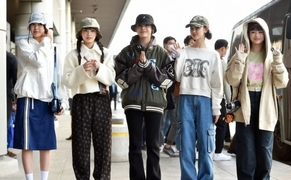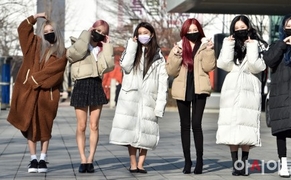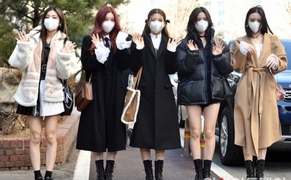 |
| People wait in line to get tested for COVID-19 at a testing booth in Seoul’s eastern district of Songpa on Jan. 26, 2022./ Source: Yonhap |
AsiaToday reporters Park Ah-ram & Lee Sun-young
South Korea’s new COVID-19 cases keep breaking records day by day amid the rapid spread of the omicron variant, putting the so-called K-quarantine to test. As the nation’s daily COVID-19 cases surpassed 10,000 for the first time despite its strict social distancing rules and high vaccination rates, the government is now expecting that the country would achieve the formation of collective herd immunity.
“The country’s daily coronavirus cases have shot up to over 13,000 in just a day after the omicron variant has become dominant,” Prime Minister Kim Boo-kyum said Wednesday. “From now on, the main goal of our antivirus response system will be to reduce critical cases and deaths,” Kim said at the meeting of the Central Disaster and Safety Countermeasures Headquarters. Beginning Feb. 3, the system will expand nationwide, with the introduction of rapid antigen tests at designated local clinics and hospitals, according to the prime minister.
Health authorities shared predictions Wednesday that omicron cases could reach between 7,200 and 8,300 at the end of January and between 31,800 and 52,200 at the end of March, given that the transmissibility of omicron is about 2.5 times that of the delta variant.
However, there were already more than 10,000 new daily confirmed cases. The country added 13,012 new cases Wednesday, taking the total caseload to 762,983, the Korea Disease Control and Prevention Agency (KDCA) said. It was the first time that the country’s daily cases surpassed 10,000 in 737 days since the country saw its first case of COVID-19 two years ago.
Wednesday’s tally is a big jump of more than 50 percent from the previous day which hit a record of 8,571. The daily figures have more than doubled from around 3,800 to over 10,000 since early last week.
Of the new cases, 12,743 were locally infected while 269 were imported from overseas. Among the locally transmitted cases, Gyeonggi Province that surrounds capital Seoul reported 4,184 new cases, followed by Seoul with 3,110 and the western port city of Incheon at 860. The number of new infections in the non-capital areas was 4,589, or 36 percent of the total caseload.
The government, which has been responding to the virus with strong defensive strategies such as social distancing rules and vaccination against the virus, said that it expects to form collective herd immunity against the virus through the spread of the omicron variant like other countries.
“If we manage to weather the current wave of the pandemic smoothly, South Korea could face a stable situation like those other countries that experienced the rapid spread of omicron,” Sohn Young-rae, a senior health official, said.
#omicron #COVID-19
Copyright by Asiatoday
Most Read
-
1
-
2
-
3
-
4
-
5
-
6
-
7





















